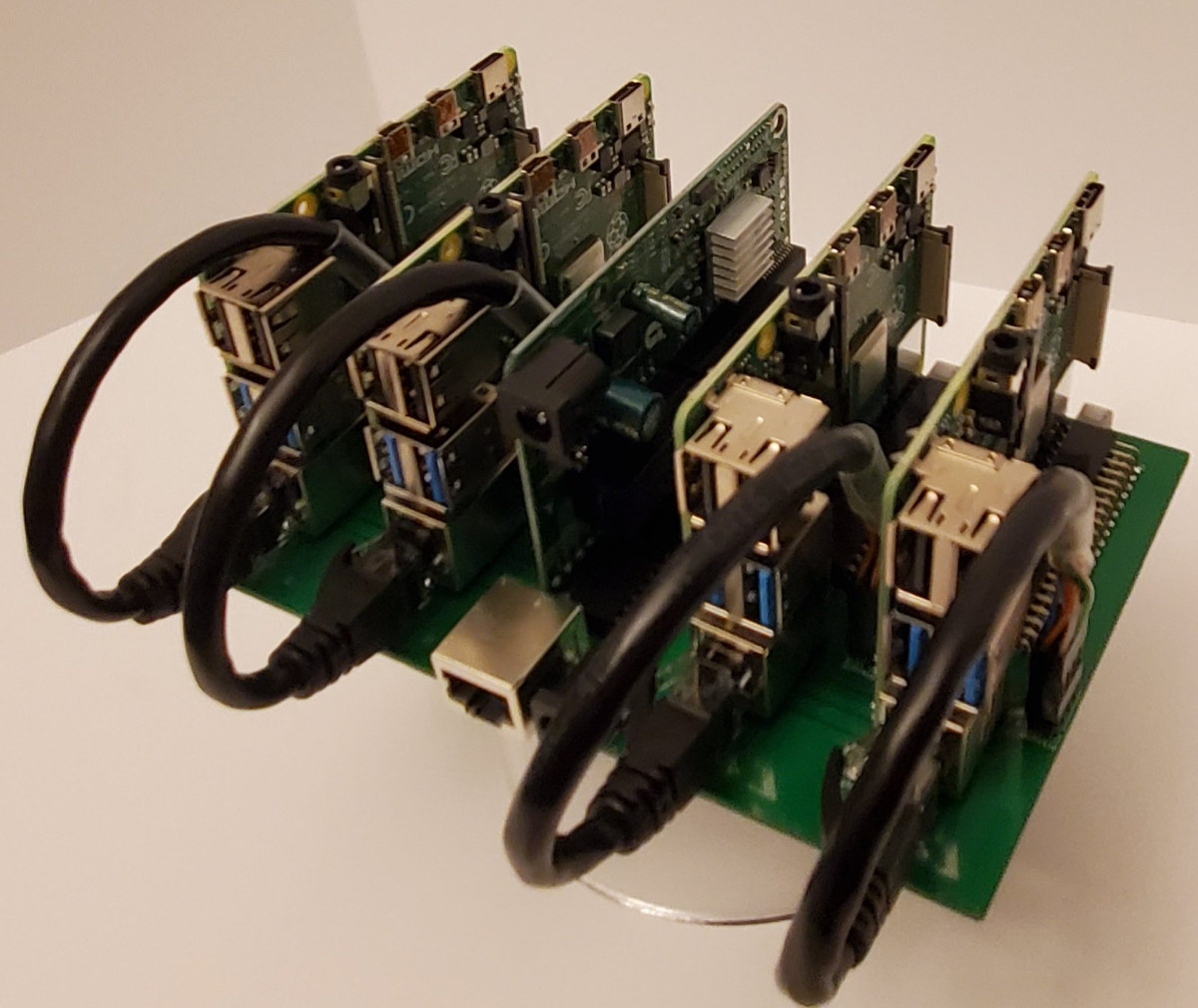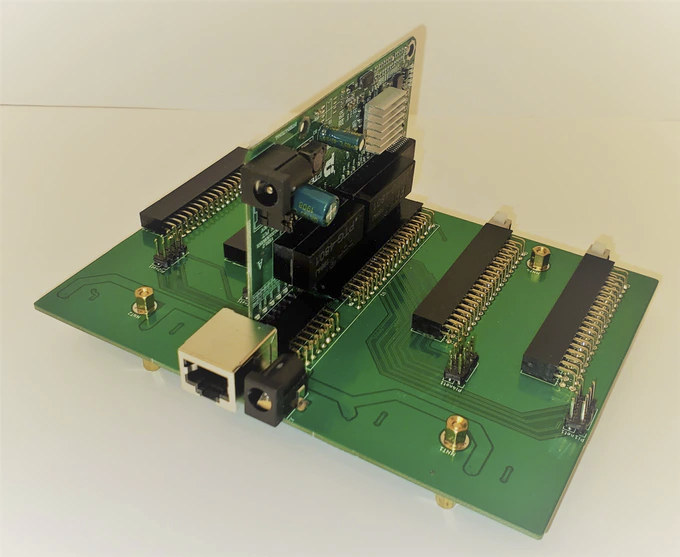We’ve seen Raspberry Pi cluster boards before, and most of them either use Raspberry Pi Zero boards or Raspberry Pi Compute Modules. Some examples include Turing Pi Clusterboard for up to 7 RPi CM3 modules, Cluster HAT board taking up to 4 Pi Zero board, and Mininodes Raspberry Pi 3 COM Carrier Board.
But some other solutions like Bitscope rely instead on full-sized Raspberry Pi 2/3/4 Model B boards. Another such option is IPTerra CloverPI board allowing up to 4 Raspberry Pi or compatible boards with 40-pin header to be clustered into a single unit powered by one power supply and connected via a 5-port Gigabit Ethernet switch.
CloverPI is shown above without RPi boards. The mainboard includes four 40-pin headers, four 6-pin Ethernet headers for SBC’s, as well as one Gigabit Ethernet port, and one power jack. There’s also a board/card fitted in the middle of the latest version of the board that can take 12 or 19V power supply to power all four SBCs and comes with a 5-port Gigabit Ethernet switch.
This is what the setup looks like with four Raspberry Pi 4 boards and Ethernet cables plugged into CloverPI 1.4.

I can’t quite figure out why there needs to be not one but two power barrel jacks for power.
Features highlighted by the company:
- Backplane compatible with any Raspberry Pis containing the standardized GPIO pins
- Integrated power for four Raspberry Pi boards
- Individual power switches for each SBC
- Individually addressable RGB LED and link LED for each board
- Ethernet/Network header for each raspberry pi
- 5-port Gigabit switch – 4x ports for Raspberry Pi boards, and one for uplink
Some of the potential use cases for CloverPI include K8s, Docker swarm, full-stack development via OpenStack, small office server stack, and Open Flickr stack. The good point of the solution is that it greatly reduces cable mess. No need for USB power supply for each board, short Ethernet cable, and no external Ethernet switch/hub required to interconnect the boards.
CloverPI has recently launched on Kickstarter with a $15,000 funding goal that is so far about 60% funded. Rewards start at $90 for the backplane, power & switch board, and four Ethernet cables. Shipping adds $8 to the US, and $20 to the rest of the world with backers expected to receive their reward(s) in November 2020. The retail price will allegedly be $149.90. A few more details may also be found on the official website.
Via LinuxGizmos and Geeky Gadgets

Jean-Luc started CNX Software in 2010 as a part-time endeavor, before quitting his job as a software engineering manager, and starting to write daily news, and reviews full time later in 2011.
Support CNX Software! Donate via cryptocurrencies, become a Patron on Patreon, or purchase goods on Amazon or Aliexpress





